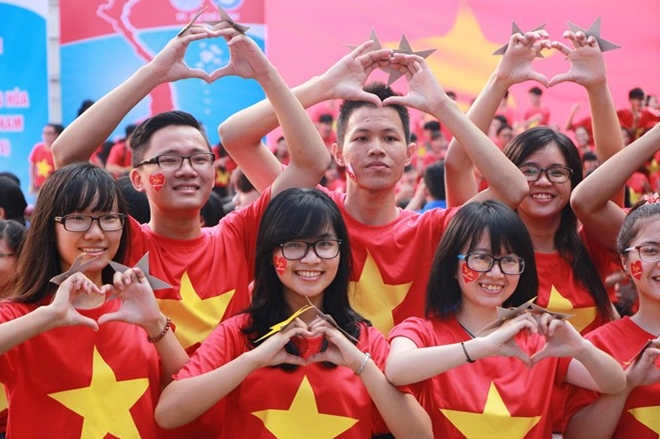Vietnam makes a breakthrough in human development
 |
People’s health prior to economic growth
Vietnam broke into high human development (HDI) category group for the first time, according to a report on global human development entitled “The Next Frontier: Human Development and the Anthropocene” released in mid-December 2020 by the United Nations Development Program (UNDP) in Vietnam in coordination with the Ministry of Planning and Investment.
“Vietnam’s High Human Development is a remarkable achievement and also creates opportunities for greater and more rapid progress in the coming development period”, says UNDP Resident Representative Caitlin Wiesen. She also praised Vietnam for embarking firmly on people-centered development and prioritizing human development and equality in its socio-economic development strategies and plans.
According to the UNDP experts' analysis, Vietnam’s actions and efforts during the COVID-19 pandemic were the latest and most vivid demonstration of the “for the people” spirit. Wiesen also noted that Vietnam's successful response to the COVID-19 pandemic was an inspiring story, in which transparency, accountability and social cohesion were the keys to success.
Vietnam has been called “model” of an effective response to the pandemic.
No one is left behind
Vietnam is one of the outstanding countries in implementing the UN’s Millennium Goals and the Sustainable Development Goals.
Vietnam’s economy grew strongly from an agriculture-based one in 1985 to a 262-billion-USD-worth economy 35 years later and became one of world’s 16 most successful emerging economies. Economic growth is the basis and premise for the Government of Vietnam to take care of its people and well implement welfare policies, as well as protect and ensure basic rights for vulnerable groups. Up to now, the Party and State of Vietnam have issued 118 policies related to hunger eradication, poverty reduction, socio-economic development and improvement of living conditions for ethnic minorities.
In spite of various difficulties, the National Assembly and the Government of Vietnam still doubled the budget for poverty reduction, according to a report at a national teleconference on poverty reduction in the 2016-2020 period on December 11. Specifically, 21% of the State budget is spent on social welfare, the highest level among Southeast Asian countries.
During the COVID-19 pandemic, Vietnam introduced a policy to directly support 13 million people from all walks of life. Thanks to the synchronous implementation of policies, in the 2016-2020 period, the multidimensional poverty rate in Vietnam decreased from 9.88% in 2015 to 3.75% in 2019 and the rate is expected to reduce to less than 3% in 2020, making Vietnam the first country to finish the UN’s Millennium Goals on poverty reduction.
Particularly, the movement “Joining hands to help the poor – No one is left behind” has received wide and effective response from the whole society. The Central Committee of the Vietnam Fatherland Front successfully raised nearly VND 2,400 billion for the “Fund for the Poor and Social Security” in the “Day for the poor” campaign in October 2020.
These impressive results are due to inclusive growth and development in Vietnam as almost all the people are participating in the development process and enjoying benefits from the process. The UN Happiness Index 2020 report, based on six indicators: income, freedom, trust, longevity, social support and generosity, also shows that Vietnam has consistently improved its ranking over the past years, and the country has stepped up 11 positions this year against last year.

